It’s that time of year again: election season. And, no matter your political persuasion, this means one thing: lots and lots of text; from debate transcripts to email leaks and political ad copy. As a text analytics company we’d be remiss to ignore this opportunity. So, like we did in 2016 when we partnered with The Boston Globe, we’re going to feed the biggest political news events to AI-powered NLP tool, Semantria, and see what we can find. First up? The October Democratic debate. We pulled debate data from The Washington Post and uploaded it to our web-based NLP dashboard. The entire dataset comprises 553 total spoken comments, or 32,157 words (enough words to fill up a Young Adult fiction novel).
A new chapter for Elizabeth Warren
Elizabeth Warren came out of the October Democratic debate as the defacto front-runner, jostling with former Vice President Joe Biden. Indeed, Warren was mentioned 71% more than Biden. And, while his presence loomed large over the stage, President Trump only accounted for the third-most mentions; second place, perhaps surprisingly, goes to the veteran Mayor from South Bend, Pete Buttigieg (was most associated with war, healthcare and gun violence).
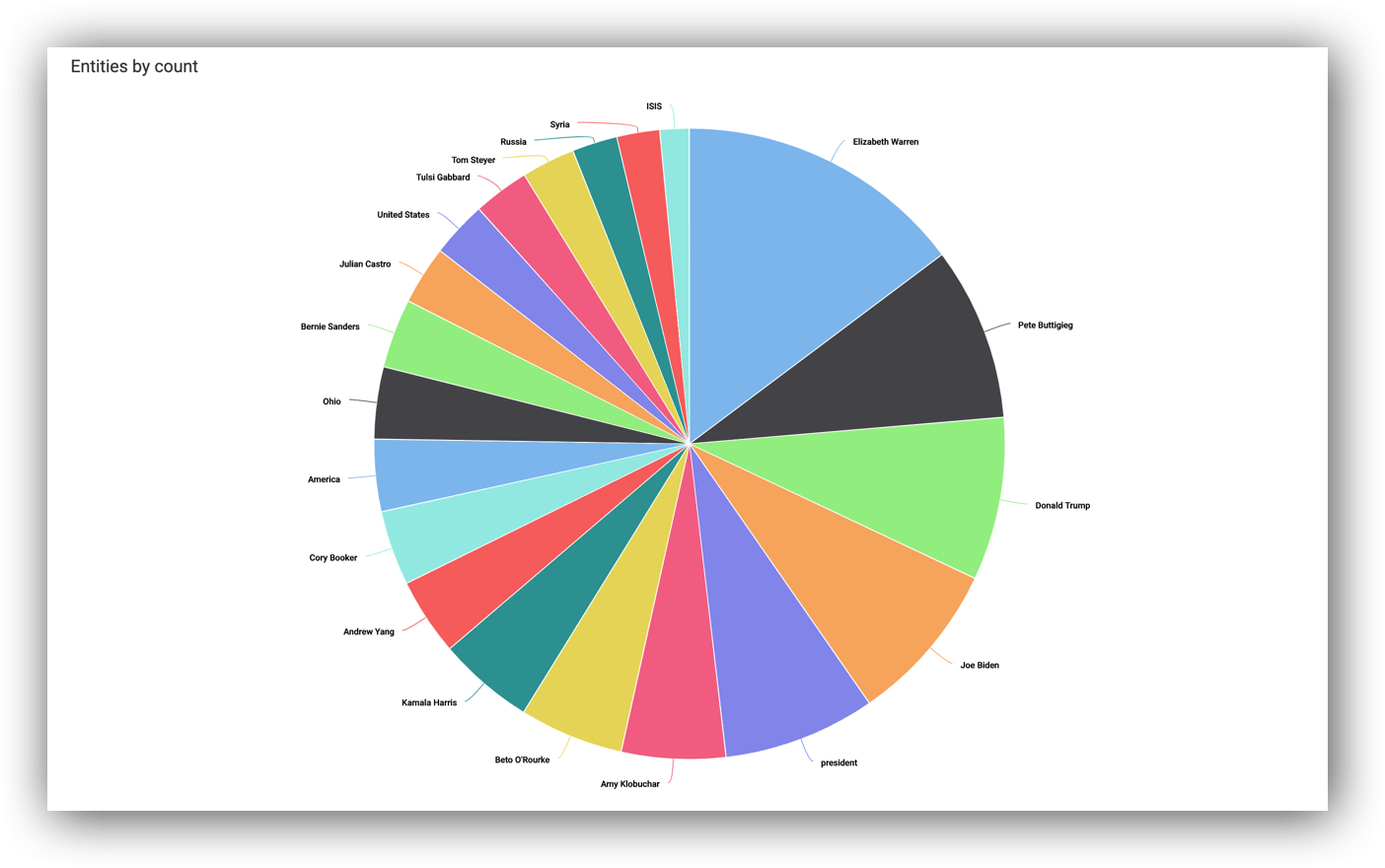
But the main topic of the night was Democratic economic policies, led by Senator Warren. In fact, the discussion of economic policies consumed 10% of the entire debate, almost double the amount of time that was spent on healthcare. Of course, the two conversations were not mutually exclusive. Many of the mentions surrounding economic policy were related to a contentious 4% income tax on the middle-class that might fund Medicare for All.
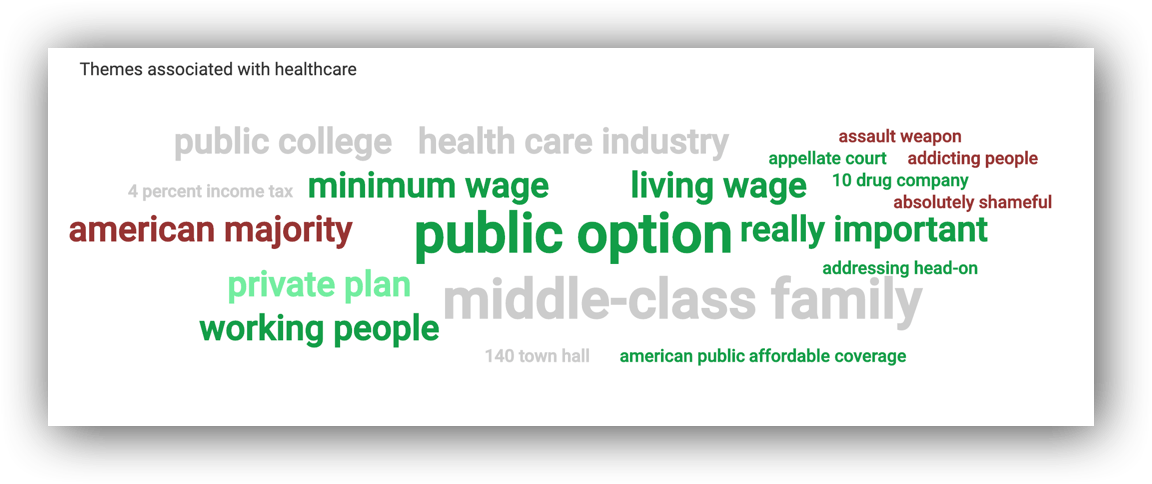
Friends across the aisle
Interestingly, Republicans didn’t get too bad a rap. Most of the conversation revolved around commitments to bipartisanship and the need to speak meaningfully to Republican voters.
[perfectpullquote align=”full” bordertop=”false” cite=”” link=”” color=”” class=”” size=””]“And the way we win big is with that fired up Democratic base that’s out there today, but it is also about bringing in independents and moderate Republicans”
—Senator Amy Klobuchar[/perfectpullquote]
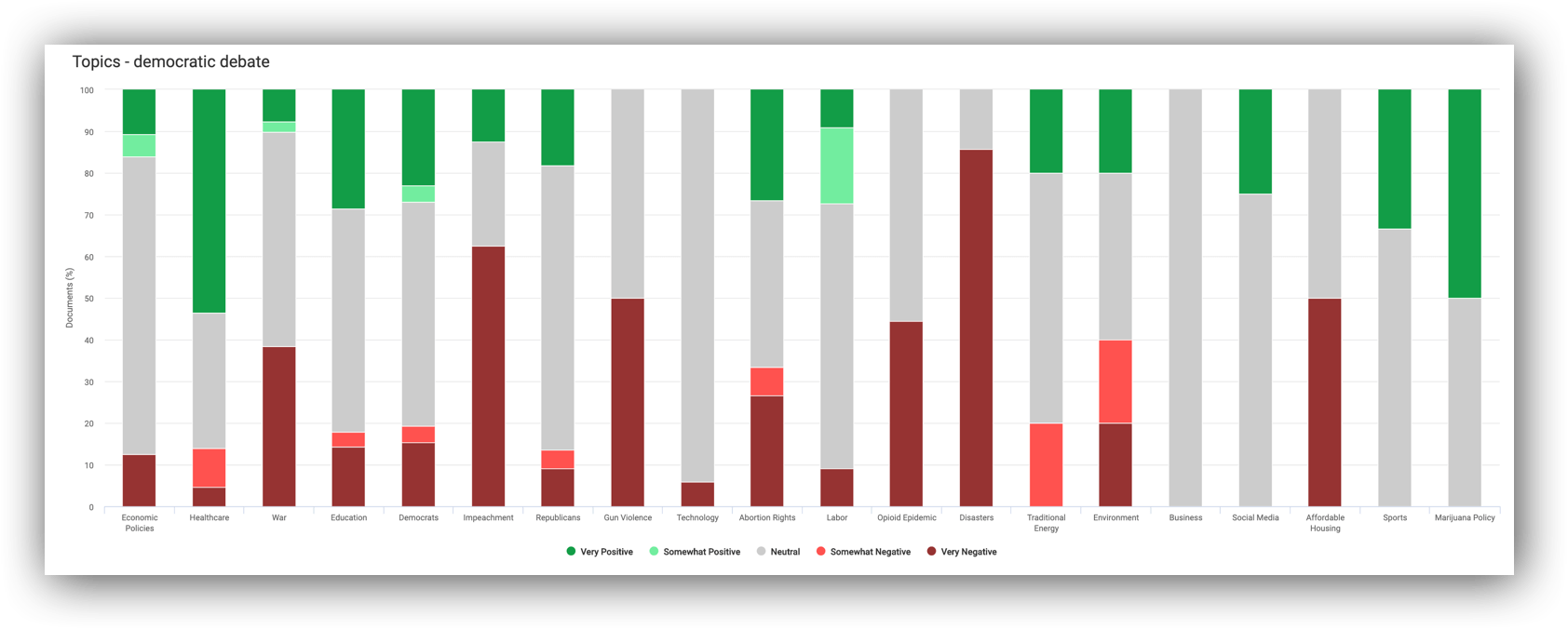
Almost all the candidates on the stage expressed negative sentiment when it came to the Republicans’ inaction on the withdrawal of American support of Kurds in Syria. Much of the negative sentiment around the topic of “War” centers on this issue. The positive sentiment associated with “War” mainly derives from Rep. Tulsi Gabbard. She advocated for a drop in sanctions and the benefits associated with ending what she described as a “regime-change war.”
High crimes and misdemeanors
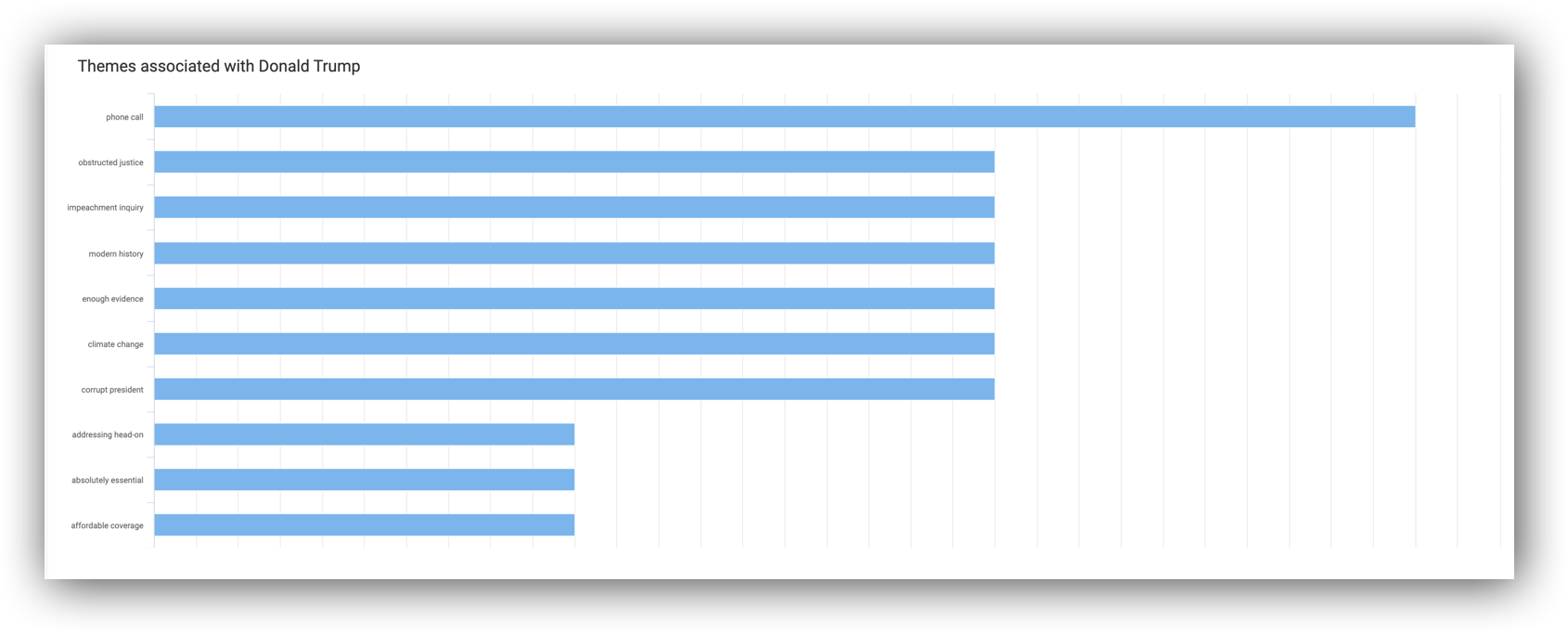
Then there are the impeachment proceedings currently moving through the House of Representatives. In fact, almost every single conversation dealing with Donald Trump touched on the inquiry. Specifically, the President was most associated obstruction of justice, corruption, and the fateful phone call with President Zelensky of Ukraine. However, the subject did not even crack the top five topics discussed, despite the media storm surrounding it. This runs contrary to the narrative put forward by the White House, which insists that Democrats are being consumed by fanatical impeachment fever.
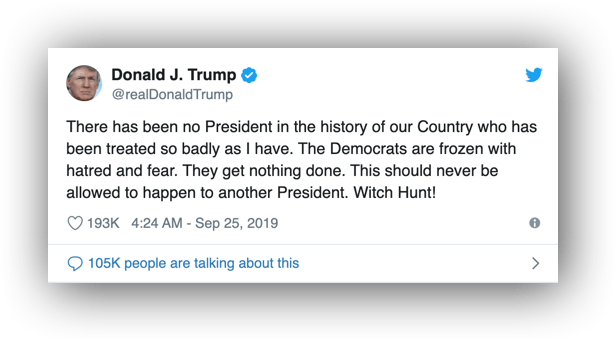
Do it yourself
Debates like this are great fodder for Natural Language Processing (NLP) engines, as the signal tends to be quite strong and the concepts well defined. It makes it even easier that some vendors, like Lexalytics, an InMoment Company, provide pre-built news/finance industry packs that are ready to use out of the box. Solutions like this help interested parties monitor trends in news, finance, and current events with little effort.